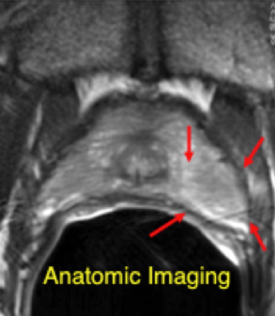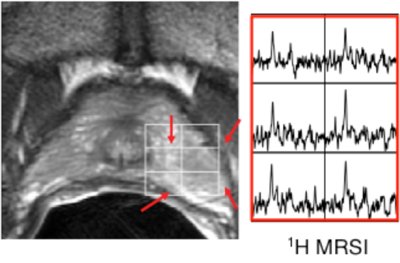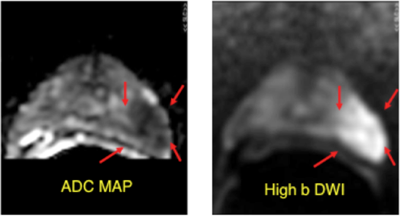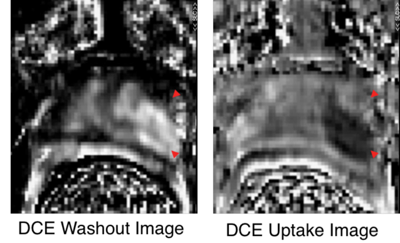In advance of your scheduled exam, please review the following information, including contraindications, safety concerns, and possible contrast agent (if used) nephrotoxic risks (pdf). If ordered by your primary care physician, you may be asked to have a creatinine test done anytime from six weeks up until the same day of the exam.
On the day of the exam, a staff person will be available to answer any questions. You will also be asked to sign a consent form (which is available here to be reviewed at your convenience prior to your appointment - pdf). This will enable us to use the most advanced technology only available at UCSF.
During the procedure, you will be asked to lie down on the MRI platform and turn on your side with your back to the nurse. The nurse will complete a brief digital exam to assess the area for safe probe insertion and then insert an endorectal probe, which is lubricated with KY gel. Then, you will need to turn on your back. You will be given earphones or earplugs to help block out noise from the MRI scanner. Then, you will be positioned within the bore of the MRI scanner.
While inside the MRI bore and during the course of the scan, you, doctors, and technologists may communicate via a microphone and room loudspeaker system. In order for us to obtain the best images and data, you will need to remain motionless and relaxed during the entire exam, which lasts about 60 minutes. Note: Ending the exam too soon or having too much body movement during its course can affect data acquisition and render imaging results uninterpretable to the radiologist.
Upon completion of the exam, you will be moved outside of the MRI bore and the endorectal probe will be removed. After this is done, you may return to the changing area, retrieve your personal belongings, and leave the imaging center. If you should have questions, concerns or experience a non-emergency problem during the exam, you will need to wait for a break between image acquisition sequences to address these to the technologist in the control room.
Note: You will not be exposed to harmful radiation during these studies, nor will invasive procedures, such as a biopsy, be performed.
If you have any questions before your exam, please call (415) 353-4030.




